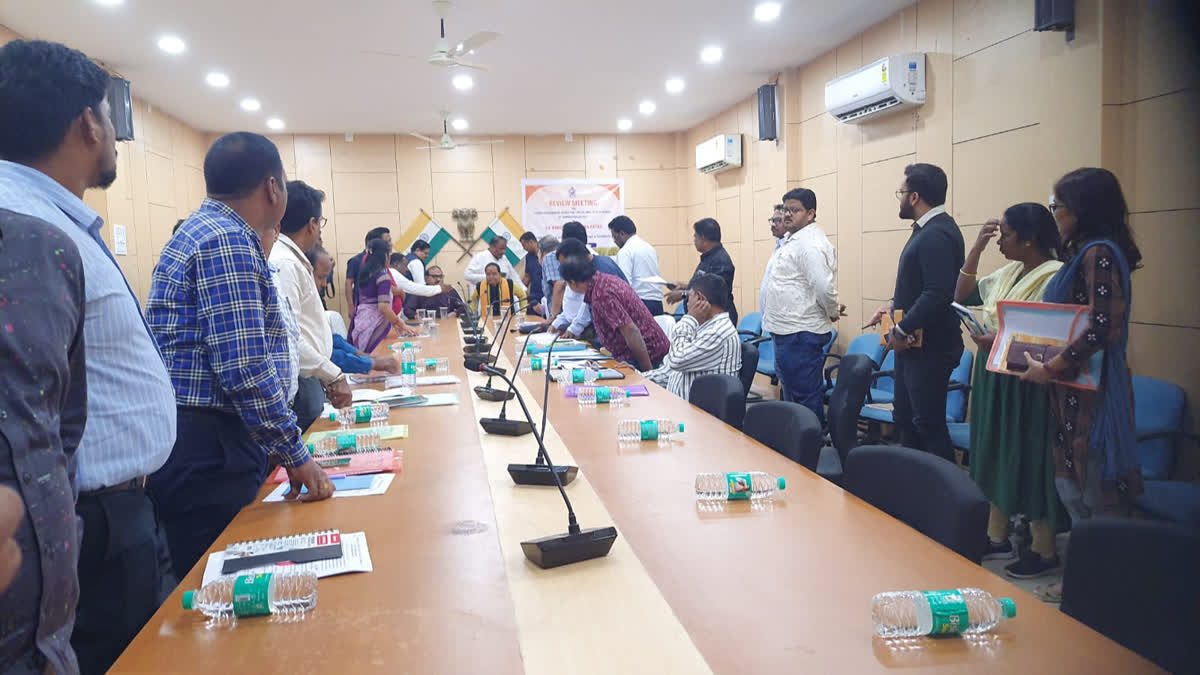Sambalpur: Sambalpur district is gearing up for the Kharif paddy procurement season, scheduled to start on November 22. The District Level Paddy Procurement Committee (DLPC) has finalized arrangements to ensure that the process runs smoothly and efficiently. With 59,818 verified farmers ready to sell their produce, the state government has assured reforms in key areas to address issues that have plagued the system for years.
Under the previous administration, farmers faced major challenges, including delays in the centralized token system and unfair weight cuts by millers. Many farmers complained that tokens were issued either too early or too late, disrupting their ability to sell paddy. Millers were accused of reducing the weight of paddy by 5 to 10 kg per quintal, citing poor quality as an excuse. These issues, coupled with the interference of brokers, led to widespread dissatisfaction.
However, the new government, led by Chief Minister Mohan Charan Majhi, has introduced several measures to address these concerns.
Key Measures Announced by the Government
Reforms in the Token System
Food Supplies Minister Krushna Chandra Patra has emphasized decentralization of the token system. Unlike the earlier approach, where tokens were issued at the state level, district collectors will now have the authority to manage and issue tokens. This was announced at a review meeting chaired by the minister on Wednesday. It was also finalized that steps will be taken to ensure a smooth process for farmers.
The minister also announced a provision allowing collectors to extend the validity of expired tokens by seven days to ensure that no farmer misses the opportunity to sell their produce. While the token system will not be entirely abolished, these changes aim to make it more flexible and farmer-friendly.
“Some farmers have received tokens before their paddy is ready, while others, whose paddy is ready, are still waiting for tokens. We are working to fix these issues. From now on, token decisions will be taken at the district level under the supervision of collectors,” said Patra during a review meeting in Sambalpur.
Enhanced Infrastructure and Monitoring
The state government has introduced several measures to ensure transparency and improve facilities at procurement centers (mandis):
• CCTV Installation: Cameras will be installed at all 129 procurement centers to monitor activities and prevent malpractice.
• Border Patrolling: Strict surveillance will be conducted at district borders to prevent the illegal inflow of paddy from other districts or states.
• Farmer Amenities: Farmers will have access to sheds, seating arrangements, and drinking water facilities at mandis.
Direct Payment to Farmers
The minister assured that all payments for paddy would be credited directly to farmers’ bank accounts, bypassing middlemen. This initiative is expected to eliminate corruption and delays in payment, providing farmers with timely and secure transactions.
Scale of Procurement in Sambalpur
The district has made extensive preparations for the Kharif procurement season:
